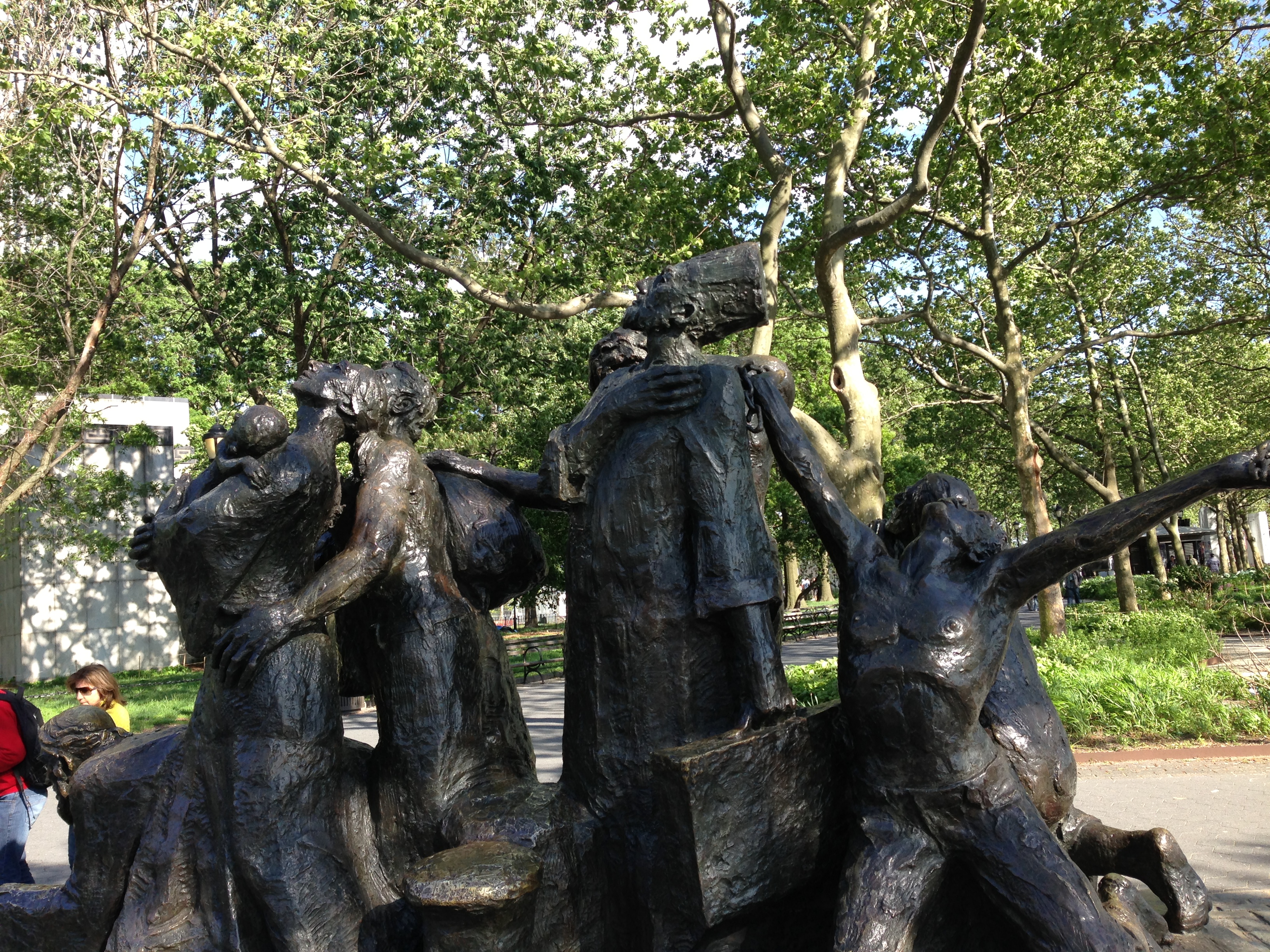First in a series of three blogs.
God calls people of faith to remember that they once were strangers in a strange land and they must, must welcome the stranger as an expression of covenant faithfulness. (Leviticus 19:33-34)
For the past several weeks I have been working on organizing a webinar, “Loving Our Neighbors in a New Administration.” It was supposed to be focused on helping people of faith to be educated and organized about how they can help to protect immigrants, considering the extreme, potentially harmful promises that President Trump made during his campaign. In the event description, I wrote: “We cannot wait to see what could happen in the coming weeks and months. Instead, we must be proactive and continue to build a powerful movement that is driven locally and organized across North Carolina.”
In retrospect, I see I was right about one thing—we couldn’t afford to wait. Because three days into the new administration, President Trump has already issued the most extreme single-day changes to immigration policy in recent memory. Needless to say, we postponed the webinar until February 9 in order to have more time to process what these changes can and will mean to the immigrant community. As I am continuing to contemplate these new measures, I want to examine these new executive orders under the lens of the gospel. What would Jesus think about Trump’s new border control measures?
The first component of the immigration debate that I want to consider is the notion of “sanctuary.” Offering sanctuary to those who are being persecuted unjustly is one of the most ancient traditions that we have as people of faith. The ancient Hebrew people allowed temples and even whole cities to declare themselves places of asylum for persons accused of a crime, a practice that allowed those wrongfully accused or facing unjust penalty to escape punitive retribution until the matter could be resolved. And this concept of the church as a safe haven for those in need and the offering of sanctuary as a moral action continues throughout history. I realize that opponents of sanctuary would say that people who come here illegally have broken the law and therefore should not be given refuge. However, the Sanctuary Movement recognizes that no human being is illegal because we are all made in the image of God. And, as Rev. Dr. Martin Luther King, Jr. wrote in his “Letter from a Birmingham Jail,” “There are just laws and there are unjust laws. I would agree with St. Augustine that ‘an unjust law is no law at all.’”
President Trump’s recent executive orders are the opposite of sanctuary, as they prioritize deportation over policies that respect dignity and human worth. These executive orders will increase the powers of immigration law enforcement and cut federal funding for sanctuary cities. The second executive action reinstates the Secure Communities Program, which empowers local authorities to share fingerprints and other arrest data to help track down undocumented immigrants. Police cooperation with ICE harms those who are most vulnerable, especially women in domestic violence situations who often don’t report their abusers for fear they’ll be deported instead. Finally, the executive orders strip federal money from sanctuary cities and establish the publication of a weekly list of crimes purportedly committed by undocumented immigrants in sanctuary cities.
These policies are in direct violation of our religious mandate to welcome the stranger and care for the most vulnerable. This is not about political affiliation; rather, it is a moral responsibility to demonstrate compassion and justice. Families being torn apart is wrong; people dying in the desert is wrong; children being held in detention without basic health care or civil rights is wrong. We as people of faith must take action to stop these things from happening. Sanctuary is an ancient spiritual act that we must reclaim because it has the power to transform individuals, congregations, communities, and nations.
We are very excited that many congregations have demonstrated an interest in becoming sanctuaries as evidenced by several workshops that are taking place this weekend. If you are interested in the Sanctuary Movement, I encourage you to download this toolkit. If you are interested in policy updates and other ways, including sanctuary, that congregations can support immigrants under the Trump Administration, I encourage you to participate in our upcoming webinar, “Loving Our Neighbors in a New Administration.” It will take place on Thursday, February 9, from 3 to 4 p.m.

